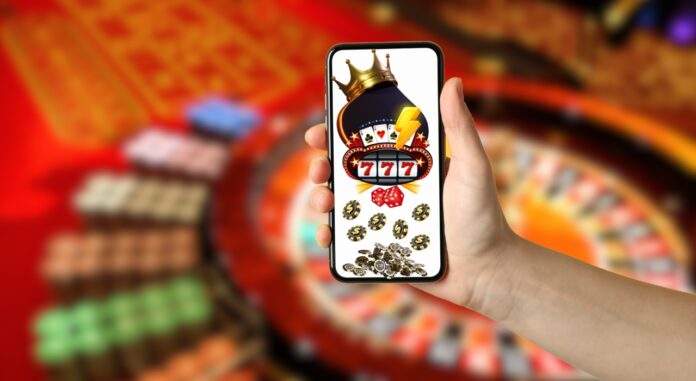
Online casinos have become a mainstay in the world of entertainment, offering the excitement of Vegas-style gambling to players across the globe. Despite their popularity, misconceptions about online gambling persist, casting doubts in the minds of potential players. It’s essential to address these myths head-on. By debunking the most common falsehoods, we can shed light on the reality of online gambling, allowing individuals to engage with these platforms responsibly and with clear expectations.
Myth 1: Online Casinos Are Rigged

The Myth: A prevalent belief is that online casinos are designed to cheat players, ensuring that the house always wins.
The Truth: This myth couldn’t be further from the truth when it comes to regulated and licensed web casinos. These establishments are legally obligated to honor payouts, and their business models rely on maintaining a trustworthy relationship with their players. Payout rates, or Return to Player (RTP) percentages, are often publicly displayed on their websites, providing transparency and building trust. These percentages are an average rate of return and are monitored over time through regular audits. While disputes can occur, they are generally resolved through customer service or regulatory intervention. The vast majority of online casino transactions are completed without issue, with millions of successful withdrawals occurring each year.
Myth 2: Online Casinos Never Payout
The Myth: There’s a persistent rumor that online casinos consistently avoid paying out winnings through various loopholes and technicalities.
The Truth: Reputable online casinos are far from being rigged. They use sophisticated Random Number Generators (RNGs) to ensure that the outcome of games is entirely random and fair. These RNGs are subject to rigorous testing and regular audits by independent, third-party organizations like eCOGRA (eCommerce Online Gaming Regulation and Assurance) to verify their integrity. Furthermore, licensed web casinos must adhere to strict regulatory standards set by gambling authorities, which include fairness checks and transparency requirements. The myth of rigging stems from a misunderstanding of gambling odds and the nature of casino games, which are designed to be profitable over the long term while allowing for random short-term wins by players.
Myth 3: Online Gambling Is Illegal Everywhere
The Myth: A common misconception is that online gambling is illegal in most parts of the world, leading many to avoid it altogether.
The Truth: The legality of online gambling is not a black-and-white issue; it varies significantly from one jurisdiction to another. Many countries have established regulatory bodies to license and oversee web casinos, ensuring they operate within the confines of the law and protect players. For example, the United Kingdom has the Gambling Commission, while Malta has the Malta Gaming Authority. These regulators enforce strict standards regarding player safety, fair play, and responsible gambling. In regions where web gambling is legal, players can enjoy casino games with peace of mind, knowing that they are not breaking the law.
Myth 4: You Can’t Win at Online Casinos

The Myth: Some people argue that it is impossible to win any significant amount of money at online casinos, believing that the games are set up to pay out less than they take in.
The Truth: While it is true that casino games are designed with a house edge, this does not mean players cannot win. The house edge is a small percentage that ensures the casino makes a profit in the long run, but it also allows for the possibility of players winning in the short term. Many players have won substantial amounts at web casinos, and some have even hit life-changing jackpots. Games like blackjack and video poker, which involve an element of skill, can have a reduced house edge, and with the right strategies, players can increase their chances of winning. It’s important to play responsibly and to remember that gambling should be for entertainment, not as a way to make money.
Myth 5: Casinos Target Vulnerable Players
The Myth: There is a belief that web casinos specifically target individuals who are vulnerable to gambling addiction, exploiting them for profit.
The Truth: Responsible gambling is a top priority for legitimate online casinos. They implement various measures to prevent problem gambling and provide help to those who need it. Features such as self-exclusion, deposit limits, and reality checks are common practices. Moreover, reputable web casinos work closely with organizations that offer support to individuals with gambling problems, such as GamCare and Gamblers Anonymous. The industry is moving towards a more sustainable model where player protection and corporate responsibility are taken seriously.
Myth 6: Casinos Always Cheat with Bonuses
The Myth: A widespread suspicion is that online casino bonuses are deceptive, trapping players into spending more money than they intended.
The Truth: Bonuses are marketing tools used by web casinos to attract new players and retain existing ones. While it’s true that bonuses come with terms and conditions, these are not designed to cheat players but to prevent abuse of the bonus system. Wagering requirements, for example, require players to bet a certain amount before they can withdraw bonus winnings. These conditions are clearly stated in the bonus terms, and players should always read and understand them before accepting any offers. Many players successfully meet these requirements and benefit from bonuses, which can extend their playtime and improve their chances of winning.
Myth 7: Gambling Leads to Addiction

The Myth: A common concern is that online gambling is more addictive than land-based gambling and leads to higher rates of gambling addiction.
The Truth: Gambling addiction is a serious issue, whether it occurs online or in a physical casino. However, online casinos are not inherently more addictive. Many provide tools to help players manage their gambling habits, such as setting limits on deposits, losses, or playing time. Additionally, there are numerous resources and support networks available to help those struggling with gambling addiction. It’s important for players to gamble responsibly and to seek help if they feel they are losing control.
Myth 8: Online Casinos Steal Personal Information
The Myth: Concerns about cybersecurity lead some to believe that online casinos are hotbeds for theft of personal information.
The Truth: Security is a top concern for online casinos, as their reputation depends on protecting player information. They employ advanced encryption technologies, similar to those used by banks, to secure personal and financial data. Regular security audits are conducted to ensure that all protective measures are up to date and effective. While no system is infallible, reputable online casinos invest heavily in cybersecurity to safeguard their customers’ data.
Myth 9: Online Casinos Are Only for Gamblers
The Myth: There’s a notion that online casinos are solely for hardcore gamblers looking to make or lose money.
The Truth: Internet casinos offer a wide range of entertainment options that go beyond traditional gambling. Many feature games with a social element, such as live dealer games, where players can interact with each other and the dealer. They also offer free-to-play games where no money is at stake, catering to those who enjoy casino games for fun without the risk of gambling.
Myth 10: Online Casino Games Are Always Rigged

The Myth: The belief persists that all online casino games are inherently unfair and designed to scam players.
The Truth: The fairness of Internet casino games is ensured by independent testing agencies, which verify that the games operate correctly and offer a fair chance of winning. These agencies test the RNGs and RTPs to ensure compliance with industry standards. Games from reputable providers are consistently reliable and fair.
Conclusion
The myths surrounding online casinos often stem from a lack of understanding or misinformation. By addressing these misconceptions, we encourage a well-informed approach to Internet gambling. Remember to always choose licensed and regulated Internet casinos, play responsibly, and enjoy the entertainment aspect of online gaming. With these myths debunked, players can navigate the world of onInternet line casinos with confidence and clarity.








